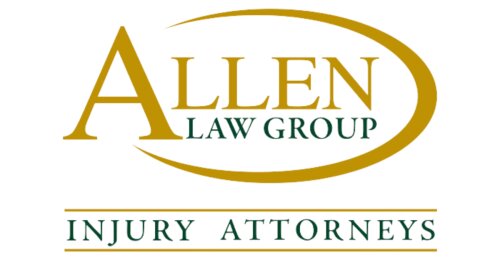Best Restructuring & Insolvency Lawyers in Chicago
Share your needs with us, get contacted by law firms.
Free. Takes 2 min.
List of the best lawyers in Chicago, United States
About Restructuring & Insolvency Law in Chicago, United States
Restructuring and insolvency law governs how financially distressed individuals or businesses can address their debts and obligations. In Chicago, these laws are a blend of federal statutes and Illinois state regulations that provide mechanisms for reorganizing, liquidating, or discharging debts. The goal is to give debtors a way to resolve their financial difficulties while ensuring creditors receive fair treatment. Chicago, being a major financial and commercial hub, sees a significant number of restructuring and insolvency cases, making it essential to understand the processes involved.
Why You May Need a Lawyer
Seeking legal advice in restructuring and insolvency situations is often crucial because of the complexity of the laws and the high financial stakes. Individuals or businesses may require a lawyer in scenarios such as:
- Filing for bankruptcy under Chapter 7, Chapter 11, or Chapter 13
- Negotiating with creditors to settle or restructure debts
- Defending against creditor lawsuits or collection actions
- Protecting assets from liquidation by trustees or creditors
- Complying with federal and state regulations during insolvency proceedings
- Representing stakeholders such as creditors, landlords, suppliers, or employees in bankruptcy cases
- Advising directors and officers on their duties during financial distress
A skilled attorney can help you understand your options, navigate complex legal processes, and maximize the chances of a favorable outcome.
Local Laws Overview
Restructuring and insolvency proceedings in Chicago are primarily governed by federal law, specifically the United States Bankruptcy Code. This code is administered through the United States Bankruptcy Court for the Northern District of Illinois, which is based in Chicago. Important aspects include:
- Chapter 7 Bankruptcy: Often referred to as liquidation bankruptcy, this involves selling nonexempt assets to pay creditors, with remaining eligible debts discharged.
- Chapter 11 Bankruptcy: Commonly used by businesses, this chapter enables reorganization of debts so the business can continue operating while repaying creditors.
- Chapter 13 Bankruptcy: Designed for individuals with regular income, this enables repayment to creditors over three to five years, after which certain debts may be discharged.
- Illinois State Laws: Illinois statutes affect exemptions, foreclosure processes, and creditor-debtor relations, adding complexity to federal proceedings.
- Creditor Rights: Local and federal laws detail how creditors can pursue claims and protect their interests during bankruptcy or restructuring.
- Automatic Stay: Once a bankruptcy case is filed, an automatic stay halts most collection efforts, lawsuits, and foreclosures.
Due to the interplay between federal and Illinois-specific laws, legal guidance is highly recommended.
Frequently Asked Questions
What is the difference between bankruptcy and insolvency?
Insolvency is the financial state where a person or business cannot pay debts as they come due. Bankruptcy is the legal process used to resolve insolvency through court proceedings, potentially leading to debt restructuring or liquidation.
What types of bankruptcy are available in Chicago?
Individuals commonly file under Chapter 7 or Chapter 13, while businesses often choose Chapter 7 for liquidation or Chapter 11 for reorganization.
How does filing for bankruptcy affect my credit?
A bankruptcy filing will negatively impact your credit report and score for several years. However, it can provide a path to financial recovery when debts become unmanageable.
Can I keep my home or car if I file for bankruptcy?
It depends on the type of bankruptcy and Illinois exemption laws. In many cases, you can keep essential assets, but it is important to consult with a lawyer about your specific situation.
What is an automatic stay?
An automatic stay is a legal protection that stops most collection actions, foreclosures, and lawsuits against the debtor as soon as a bankruptcy is filed.
Do I need to go to court if I file for bankruptcy?
Most cases require at least one court appearance, usually at a meeting of creditors. Your attorney will help you prepare for all required appearances.
How are creditors paid in a bankruptcy?
Payments to creditors depend on the type of bankruptcy, the debtor's assets, and the repayment plan approved by the court. Some creditors may receive full payment, others partial, and some none at all.
Are all debts dischargeable in bankruptcy?
Not all debts can be discharged. Common exceptions include student loans, certain taxes, child support, and debts incurred through fraud or intentional wrongdoing.
What alternatives to bankruptcy are available?
Alternatives include debt negotiation, out-of-court settlements, private restructuring, or state court proceedings. An attorney can help you weigh these options based on your circumstances.
How can a restructuring and insolvency lawyer help?
A lawyer will evaluate your financial situation, recommend the best strategy, handle all paperwork, represent you in negotiations and court, and ensure that your rights are protected at every stage.
Additional Resources
For individuals and businesses seeking more information or assistance regarding restructuring and insolvency in Chicago, the following resources can be helpful:
- United States Bankruptcy Court for the Northern District of Illinois
- Illinois Attorney General's Office - Consumer Protection Division
- The Chicago Bar Association - Lawyer Referral Service
- Legal Aid Chicago - Free legal assistance for eligible individuals
- Illinois Department of Financial and Professional Regulation
- American Bankruptcy Institute - Educational materials
Many of these organizations provide educational materials, lawyer referrals, and direct assistance with bankruptcy and restructuring matters.
Next Steps
If you are facing financial difficulties and think you may need restructuring or insolvency assistance in Chicago, consider the following steps:
- Gather all relevant financial documents such as loan statements, contracts, and recent correspondence from creditors.
- Research your options using reputable local and national resources, as listed above.
- Contact a qualified restructuring and insolvency lawyer in Chicago for a confidential consultation. Many attorneys offer free initial consultations.
- Discuss your goals and financial situation in detail with your lawyer to develop a strategy tailored to your needs.
- Follow your attorney's guidance carefully to ensure compliance with all legal requirements and to protect your rights during the process.
Taking proactive steps and seeking professional help early can improve your chances of achieving the best possible outcome during a challenging financial situation.
Lawzana helps you find the best lawyers and law firms in Chicago through a curated and pre-screened list of qualified legal professionals. Our platform offers rankings and detailed profiles of attorneys and law firms, allowing you to compare based on practice areas, including Restructuring & Insolvency, experience, and client feedback.
Each profile includes a description of the firm's areas of practice, client reviews, team members and partners, year of establishment, spoken languages, office locations, contact information, social media presence, and any published articles or resources. Most firms on our platform speak English and are experienced in both local and international legal matters.
Get a quote from top-rated law firms in Chicago, United States — quickly, securely, and without unnecessary hassle.
Disclaimer:
The information provided on this page is for general informational purposes only and does not constitute legal advice. While we strive to ensure the accuracy and relevance of the content, legal information may change over time, and interpretations of the law can vary. You should always consult with a qualified legal professional for advice specific to your situation.
We disclaim all liability for actions taken or not taken based on the content of this page. If you believe any information is incorrect or outdated, please contact us, and we will review and update it where appropriate.
















